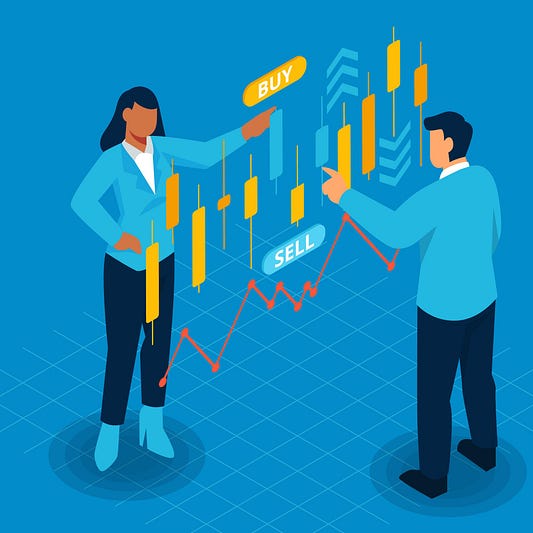How data analytics can be used to forecast trends
Ever wondered how and why the ups and downs of the economy seem to play out like a never-ending roller coaster ride?
To answer this question, let’s look at the world of data analytics and how it is helping us predict those economic twists and turns.
To do this, we will be understanding how to use data to foresee the future of our wallets, investments, and business decisions and uncover how data analytics is shaping the way we anticipate economic indicators.
The Data Goldmine
Imagine you are trying to solve a giant puzzle — where this puzzle is made up of countless pieces, and each piece represents a tiny bit of information about the economy.
These pieces include things like consumer spending, unemployment rates, stock market performance, inflation rates, and even the price of your morning latte from Starbucks.
Individually, these pieces might not seem like much, but when we put them all together, it is a data goldmine.
Data analytics is like having a team of expert puzzle solvers — it takes all those scattered puzzle pieces, arranges them, and reveals the bigger picture.
It is like looking at the stars and connecting the dots to form constellations. By analysing historical data and patterns, data analytics can uncover hidden relationships between various economic indicators.
This helps us understand how different factors influence each other and, more importantly, how they impact the overall economic landscape.
Seeing Patterns In Chaos
Let’s get down to the nitty-gritty and understand how data analytics work its magic in predicting economic indicators.
One of the key tools in the data analytics toolbox is statistical modelling. This involves creating mathematical models that simulate how different economic variables interact.
Remember those puzzles? It is like building a virtual version of that puzzle and tweaking the pieces to see how they fit together.
These models take into account historical data, trends, and various scenarios to forecast how different economic indicators might change in the future.
For instance, let’s say data shows that consumer spending tends to decrease when unemployment rates rise.
By using statistical modelling, data analysts can quantify this relationship and predict how changes in unemployment might impact consumer spending down the road.
It is like being able to predict that sudden rainstorm and grabbing your umbrella before you get soaked.
Prediction Of Economics
All of this sounds great, but the next question that most of us might ask ourselves is ‘how accurate are these predictions’.
The answer to that question is while data analytics cannot give us a crystal-clear view of the future (unfortunately no one has a real crystal ball), it does provide us with a range of possibilities.
Think of it as weather forecasting — meteorologists use data to predict whether it is likely to rain tomorrow, but they cannot tell you the exact minute a raindrop will fall on your nose.
Economic predictions work in a similar way. Data analytics can give us insights into the most likely outcomes based on historical trends and current data.
This information is like a guiding star for investors, businesses, and policymakers as they navigate the economic landscape.
It helps them make more informed decisions, plan for potential challenges, and seize opportunities before they pass by.
Real-World Impact
Let’s now try to understand how all of this theory can be put into practice. Imagine you are a business owner deciding whether to expand your operations.
You are wondering if now is the right time to act on a business decision or if you should wait a bit longer.
This is where data analytics can help. By analysing economic indicators like GDP growth, consumer sentiment, and industrial production, you can get a sense of where the economy is headed.
If the data suggests a steady growth trend, you might decide to go full steam ahead with your expansion plans.
On the flip side, if the indicators show signs of a slowdown, you might opt to hold off temporarily.
It is like having a financial compass that helps you navigate the uncertain waters of the economy.
The Road Ahead
As we venture further into the digital age, data analytics is becoming an increasingly powerful tool for predicting economic indicators.
With the rise in advancements in technology, we have access to more data than ever before.
This data, when effectively analysed, can provide us with insights that were once unimaginable.

However, it is important to remember that data analytics is not a crystal ball, and economic predictions are not set in stone.
The world is full of surprises, and unforeseen events can throw even the most sophisticated models off track.
But by embracing data analytics, we are better equipped to navigate the twists and turns of the economy and make decisions that are grounded in knowledge rather than guesswork.
So next time you hear about the stock market’s fluctuations or inflation rates’ changes — remember that behind those headlines are the hardworking data analysts and their trusty data analytics tools.
Happy predicting!
As always, if you have any other questions or thoughts, please feel free to add them to the responses section.
This article is for informational purposes only. It should not be considered Financial or Legal Advice. Not all information will be accurate. Consult a financial professional before making any major financial decisions.

